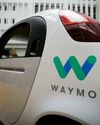CATEGORIES
Kategoriler

GROK AND XAI'S AI INFRASTRUCTURE: ELON MUSK'S SUPERCHARGED BRAIN TRUST
Elon Musk's xAl is making waves this week with Grok, a super-smart AI powered by a massive computer setup that's hard to wrap your head around.

STARSHIP FLIGHT 8: A STEP FORWARD, A STUMBLE UPWARD, AND THE ROAD TO REUSABILITY
SpaceX's eighth Starship flight test, dubbed Flight 8, soared into the skies above South Texas, delivering a mix of triumph and turbulence that underscores the company's relentless push toward a reusable future.

WAYMO'S CHINESE-MADE EVS CLEARED FOR US DELIVERY: A ROBOTAXI REVOLUTION BEGINS
Waymo's latest move is a game-changer: Chinese-made Zeekr electric vehicles (EVs) are set to hit US streets by late 2025, dodging tariffs and bringing autonomous rides closer to reality.

SWITCH ONLINE ADDS MARIO GAME BOY TITLES: RETRO FUN, MODERN VALUE
Nintendo's tossing a nostalgia bomb: Switch Online added classic Mario Game Boy titles this week. The Verge confirms Super Mario Land and Dr. Mario are live, free for subscribers, bringing 8-bit joy to 38 million users. It's not just a throwback-it's a savvy move that keeps tech users gaming on the cheap.

3D PRINTING SPEEDS WILDFIRE RECOVERY: HOMES FROM THE ASHES
Azure Printed Homes is turning tragedy into triumph, using 3D printing to rebuild LA homes lost to wildfires. This tech slashes recovery time from years to days, offering displaced tech users a fast, affordable lifeline. It's not a gimmick—it's a roof over your head, built smarter.

IROBOT LAUNCHES EIGHT NEW ROOMBAS WITH LIDAR MAPPING
This week, iRobot unveiled its most ambitious lineup yet, introducing eight new Roomba models that bring lidar mapping to the brand for the first time.

BEYOND 'SEVERANCE': THE 5 MOST POPULAR APPLE TV+ SHOWS FOR THE FAMILY'S WEEKEND
Apple TV+ has built a reputation for standout originals, blending sharp storytelling with a polish that rivals big-screen fare.

APPLE ARCADE LAUNCHES SIX NEW GAMES IN APRIL
This week, Apple Arcade unveiled a lineup of six fresh games set to land in April, bringing a mix of nostalgia and innovation to its growing catalog.

APPLE MAPS EV ROUTING ADDS TESLA SUPERCHARGER SUPPORT FOR FORD DRIVERS
This week, Apple Maps introduced a significant enhancement for Ford electric vehicle (EV) drivers, integrating Tesla Supercharger support with North American Charging Standard (NACS) connectors into its EV Routing feature.

IOS 19 RUMORED TO BE ONE OF APPLE'S BIGGEST IPHONE UPDATES EVER
This week, whispers about iOS 19 are stirring excitement among iPhone users, with Bloomberg reporting it could be one of the most transformative updates in Apple's history.

SPORTS STREAMING SCORES BIG: APPLE TV+ AND MORE BRING THE GAME HOME
Sports are roaring back to television screens, and streaming services are leading the charge, blending live action with on-demand convenience. Platforms like Apple TV+, Paramount+, ESPN+, Hulu, and Peacock have tapped into the fervor, delivering key moments from ice rinks to gridirons.

APPLE VISION PRO ROCKS WITH METALLICA: AN IMMERSIVE CONCERT EXPERIENCE UNLEASHED
Apple has rolled out a groundbreaking addition to its Vision Pro lineup, unveiling an immersive concert experience featuring Metallica that promises to redefine how fans experience live music.

AI-POWERED FARMING TOOLS GAIN TRACTION: FEEDING THE FUTURE
California's Farm-ng is sowing a quiet revolution, using AI and robotics to transform farming. Announced this week, via CBS News, these tools tackle seeding and harvesting with precision, promising US tech users fresher food and lower prices. It's not futuristic hype-it's tech that's already working the fields.

MacBook Air
THE POWER OF THE M4 CHIP MEETS ULTRA-PORTABILITY

FSR 4 SET TO ELEVATE PS5 PRO GRAPHICS IN 2026: A CLEARER PICTURE AHEAD
PlayStation's lead architect Mark Cerny dropped a tantalizing hint about the PS5 Pro's future, revealing that AMD's new FSR 4 upscaling technology will shape the \"next evolution\" of the console's PlayStation Spectral Super Resolution (PSSR).

State prison crisis hits home with young Harlemite Messiah Nantwi's death
Prison reform advocates rallied outside Harlem’s Adam Clayton Powell State Office building last Friday, Mar. 7, after another Black New Yorker’s recent death in state prison. Early reports suggest “extremely disturbing conduct” probably was the cause of 22-year-old Messiah Nantwi being killed at Mid-State Correctional Facility earlier this month, according to Gov. Kathy Hochul.

Black church leaders call for 40-day Target Boycott over $250M DEI demands
A call for economic resistance rang out from Antioch Baptist Church, where faith leaders gathered to launch a 40-day boycott of Target.

Women's inspirational stories highlight the United Airlines NYC Half
Shaunta-Mae remains determined as she makes final preparations to participate in this Saturday's United Airlines NYC Half, a New York Road Runners (NYRR) event widely recognized as the world's premier half marathon.

Panel to look at Black Church in fight for justice
Narratives about the Civil Rights Movement of the 1950s and ’60s often highlight the influence of the Black church, especially the role played by Dr. Martin Luther King, Jr., who co-pastored Atlanta, Georgia's Ebenezer Baptist Church with his father and later served as the minister at Montgomery, Alabama's Dexter Avenue Baptist Church.

Gwynne Wilcox rejoins NLRB; agency thwarts Trump for now
When the new Trump administration removed Gwynne Wilcox from the National Labor Relations Board (NLRB) on Jan. 27, it effectively incapacitated the agency.

Cuban doctors in Caricom are not 'trafficked'
Earlier this month, U.S. Secretary of State Marco Rubio announced plans by the Trump administration to take action against Caribbean governments and officials linked to Cuban medical brigades working in the region.

The Knicks endeavor to survive West Coast trip without Brunson
A worst-case scenario, or close to it, happened to the Knicks last Thursday just one game into their current seven-day, five-game West Coast road trip.

Women's basketball enters its golden age with soaring popularity
Division I college basketball is heading into March Madness, which women’s hoops now officially uses (prior to 2022 the term “madness” was men only).

‘Vibe Check’ hosts discuss their perspectives on current era
For the “Vibe Check” podcast hosts, Black history is celebrated in every episode. At the Amsterdam News, every month is Black History Month.

'Ghosts' is haunting, exquisite theater at Lincoln Center
I just experienced an exquisite theatrical work, as I sat in the Mitzi E. Newhouse Theater at Lincoln Center and saw “Ghosts.”

Roy Ayers, 'the Soul of Jazz,' dies at 84
Roy Ayers, the vibraphonist, composer, and record producer whose groove pushed jazz to its soulful outer limits of hipness, inspiring a legion of hip hop artists to sample his huge catalog of music, particularly his hit “Everybody Loves the Sunshine,” died on March 4 in New York City. He was 84.

Thoughts on Wellness
Ramadan Mubarak to my Muslim family. We Christians are on a Lenten Journey that ends at Easter, April 20. Passover begins April 12. These Holy Days make me wonder what it means to live Holy lives; what does it mean to be whole? Sacred. Connected to Source. Loving neighbor and self. Do we want to be holy and whole? Do we want to be well?

New law reveals NYPD stops more Black NYers using low-level encounters
The appropriately named How Many Stops Act recently revealed just how many stops the NYPD conducted last year since the law went into effect: The department documented 1,185,728 investigative police encounters between July and December 2024. That's an average of 6,310 a day.

A 1964 boycott fought school segregation, but inequality continues
During the civil rights era, Black and Puerto Rican New Yorkers were frustrated with the constant claims of racial equality in the North. One look at public school systems, including New York's, revealed that the educational inequities for their children didn't look much different from down South.

Lawsuit challenges transport of immigrant detainees to Guantánamo
The Trump administration's continued deportation of immigrants to the U.S. naval base and detention center on Guantánamo Bay, Cuba, is being challenged by a group of civil rights organizations.